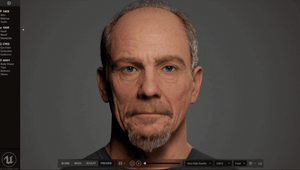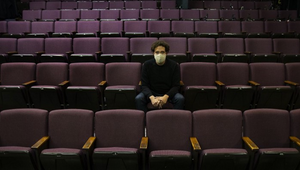
Location-Based Virtual Reality Could Open the Floodgates for VR
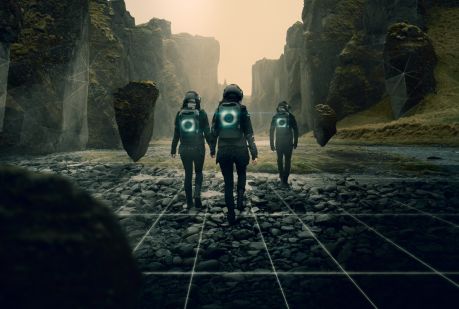
The most compelling VR content available is still largely out of reach for most consumers - the high-end headsets needed for access have not been widely adopted, yet. Content accessible via the likes of Oculus Go, Vive Focus or Google Daydream has its purpose, but the quality of experience is limited by the technical specs of current mobile devices.
The premium VR market, on the other hand, is still held back by cost of headsets.
While the industry waits for in-home premium VR to pick up the pace, location-based virtual reality (LBVR) has emerged as an important bridge to bring premium VR to the masses. Like cinemas, LBVR gives participants an experience not easily replicated in the home, allowing them to scratch their VR itch without much investment.
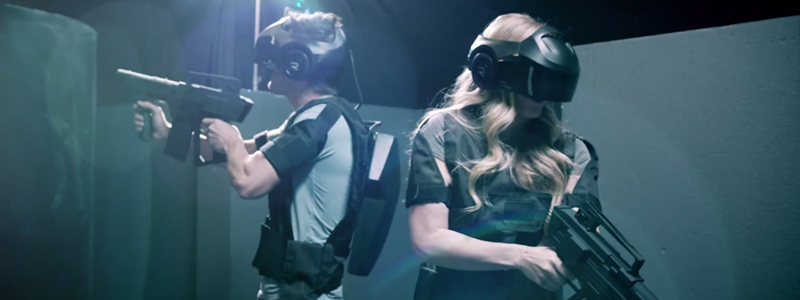
According to the latest VR Tracker Report from Futuresource Consulting, consumer spend on LBVR is expected to reach $809 million by 2022. The ability to access cinematic quality production values, a physical space purpose-built for immersive gameplay, and the high entertainment factor make for a compelling pitch to consumers. And the success of the category may well be underpinned by the fact that three in four millennials would choose to spend their money on an experience or event over something physical.
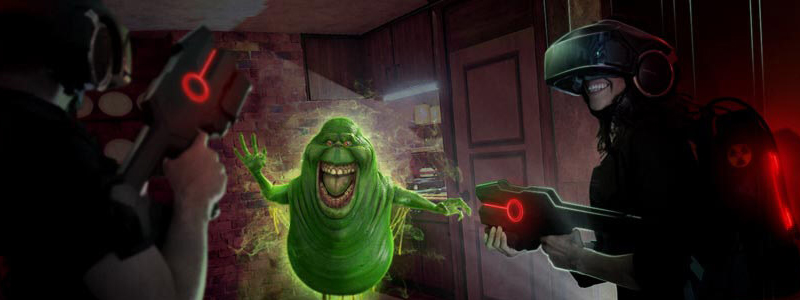
LBVR can be broken into four categories: arcades, multiplayer experiences, VR cinemas, and VR theme parks. VR arcades have been the quickest to grow and account for 40% of all LBVR revenues. There are around 4,000 VRcades globally - offering low cost, limited quality experiences - with China accounting for 75-80% of them.
VR Star has locations in Bristol and Manchester and positions itself as ‘a revolutionary new virtual reality experience centre’. With single walk in experiences starting at £5, it’s the perfect intro to VR for those that are curious. At the other end of the scale is VIVELAND, “a first of its kind VR theme park” which HTC opened in Taiwan in 2016. Located in a Taipei technology shopping centre, VIVELAND spans over 3,500 square feet and features racing simulators, 4D motion chairs, multiplayer zombies/dinosaur games, and a green screen mixed reality zone that lets others watch you battle it out in VR.
Bespoke interactive multiplayer VR offers yet another type of experience. Free-roam experiences from HOLOGATE, Zero Latency, The VOID, and Dreamscape Immersive have all had impressive launches in North America and European markets. Recently, The VOID announced it was opening nine new ‘experience centres’ in American cities, bringing the total number of centres up to 17 spread across the United States, London, Dubai, and Toronto.
The Void has produced two big installations so far: Ghostbusters: Dimension, which premiered at Madame Tussauds Wax Museum in New York City two years ago, and Star Wars: Secrets of the Empire, which opened at Disney theme parks and other locations last year. Working with ionic IP and creating detailed physical environments to create VR worlds you can see as well as feel - 'hyper reality' - have proved to be a winning formula.
In recent weeks, Fox has entered the location-based VR entertainment business with its Alien: Descent, a free-roaming VR experience created by FoxNext Destinations that opened at The Outlets at Orange in Orange County, California ($20 entry fee).
Another Hollywood property getting the location-based VR treatment is Jurassic World: Fallen Kingdom. The VR game launched in over 100 Dave & Buster locations ahead of the film Jurassic World: Fallen Kingdom, which arrived in U.S. cinemas on June 22, 2018. The partnership between the chain, VRC, Steven Spielberg’s Amblin Entertainment, and Universal Studios is the biggest location-based VR deal involving a major movie studio property to date.
With the Hollywood giants embracing LBVR and interesting partnerships forming, the future of this category is truly exciting. Not only is LBVR providing fantastic introductions to VR for novices, but it’s driving interest in the industry as a whole. It’s no surprise that Greenlight Insights projects that location-based VR experiences will be a billion-dollar business by the end of the year and grow to $12 billion annually in five years.
Sol Rogers is founder & CEO of REWIND









